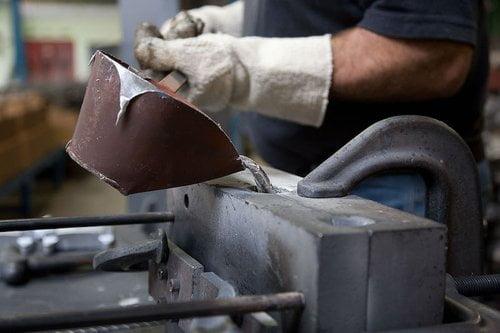Published - 28th Apr 2022

A look at the capabilities of each process
Investacast offers a wide range of manufacturing processes, including many casting options. In Part 1 of our blog Choosing the right production method for your manufactured parts we outlined the factors which will help guide your decision. In this Part 2 we look in more detail at the benefits and limitations of different processes.
For each process we have given a rough indication of the potential manufacturing range, identified suitable materials and provided relative costs to help refine your options.
Investment casting, or lost wax casting, can be used to manufacture parts from materials such as Stainless Steel, Carbon Steel, Hastelloy, Cobalt-Chrome Alloys, Inconel and Aluminium.
Water glass casting (also known as sodium silicate casting) uses a process similar to investment casting, and is suitable for materials such as Carbon Steel, Steel Alloys and Cast Iron.
Our sister company Haworth Castings has extensive experience in sand casting and we are proud to work with them to supply high quality sand castings to our customers. Materials such as Aluminium and Aluminium Bronze are suitable for this type of casting.
Sometimes referred to as ‘permanent mould’ casting, gravity die casting is a repeatable casting process used for non-ferrous materials, typically Aluminium. Our sister company Haworth Castings specialises in sand and gravity-die castings and we can work with them, or source from overseas to deliver the best solution for your casting requirements.
Pressure Die Casting
In pressure die casting a steel tool serves as the ‘mould’ into which molten metal is forced under pressure. Many types of non-ferrous metals can be used in pressure die casting, most commonly aluminium and zinc.
Casting may not be the most suitable manufacturing method for your component. Investacast also offers:
Forging
Forging is a manufacturing process involving the shaping of a metal through compression by hammering, pressing, or rolling with the aid of a tool; particularly suitable for Aluminium and Steel.
CNC Machining from solid
Investacast offers the full range of precision machining services, a manufacturing process suitable for all metals. Our sister company Metaltech specialises in high-precision machining, so we can work with them or our overseas partners to ensure you achieve the ideal manufacturing solution.
Metal Injection Moulding (MIM)
MIM is a metalworking process in which finely-powdered metal is mixed with binder material to create a feedstock that is injected into a mould. The resulting component or ‘green part’ is relatively weak and must be sintered in a furnace to achieve density.
Choosing the right production process for your product right from the start gives you a huge advantage when it comes to manufacturing, and should be factored in at the early design stages – for more on this, see our blog on Design for Manufacturing.
Along with our sister companies at Expromet Technologies Group, we advise customers on a wide range of manufacturing choices and are always ready to help you find the right solution.
Contact Investacast for a comprehensive choice of world-class engineering solutions for your performance-critical applications.
For more information please call +44 (0) 1271 866200 or email [email protected].
If you have a project, talk to our experienced sales team
Contact us